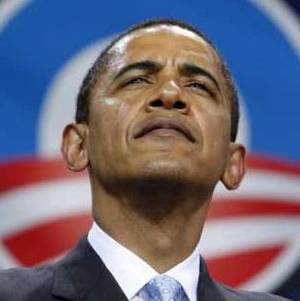Obama’s Visit to India: Cordon Tightened around Iran’s Neck?

The last trip to New Delhi by a U.S. president was made by George W. Bush in 2005; a visit with significant impact on both regional and bilateral affairs. At that time, Bush had decided to break away from the U.S. strategy of a nuclear boycott of India (and Pakistan), and roll out joint nuclear projects. Against this backdrop, India started its gradual disassociation from Iran, a process that culminated in its vote in favor of IAEA anti-Iran resolutions, and the decision to quit negotiations on the Peace Pipeline project, which is designed to transfer Iranian gas to India by traversing Pakistan.
Interdependence is a defining element of New Delhi-Washington ties. India’s increasing political and economic drive in recent decades tempts the United States to capitalize on this rising giant. On the other hand, Washington, as the leading political, economic and military global power stands atop India’s list of must-be friends. This could easily be a win-win situation for both countries.
Following the oft-quoted expression, “the 21st century is the Asian Century”, Europeans and Americans are now facing toward the largest continent more than ever, particularly to its economic powerhouses, China, India, South Korea and Japan.
Are closer ties between New Delhi and Washington meaningful for Iran? The current state of Iran-India relations is definitely affected by New Delhi’s commitment to UN sanctions, although unlike the U.S., the EU and Australia, India has refrained from imposing unilateral sanctions on Iran besides those obligated by the UN Security Council. The shadow of U.S. economic punishment looms over Indian private enterprises, however, for their cooperation with Iran, particularly in its vital energy sector.
As the U.S. has tried to pressure Iran’s close friends and trade partners across the globe (such as Turkey, Russia or the UAE), New Delhi will feel Washington’s pressure to scale down the level of its relations with Tehran, so it will take Iran an expertise-based active diplomacy to neutralize or deflate U.S. pressure.
Since the major part of Iran-India trade ties to date have been related to the energy sector, the White House will naturally try to dissuade Indian companies from boosting or continuing their partnership with Iran. According to news published a couple of weeks ago, the major Indian oil refining company, Reliance Industries, has decided not to renew a contract to purchase Iranian crude oil for the financial year 2010. Iran is also yet awaiting a response from Indian bidders for its grand energy projects in the South Pars gigantic gas field.
Nevertheless these are not the crux of concerns for Tehran: it is the military and political presence of the United States in Asia and Washington’s likely use of New Delhi’s logistics that can have serious ramifications for regional arrangements. The hush-hush circumstances surrounding military cooperation constitute a serious concern for Iran.
Mir Mahmoud Mousavi is Iran’s former ambassador to Turkey.

